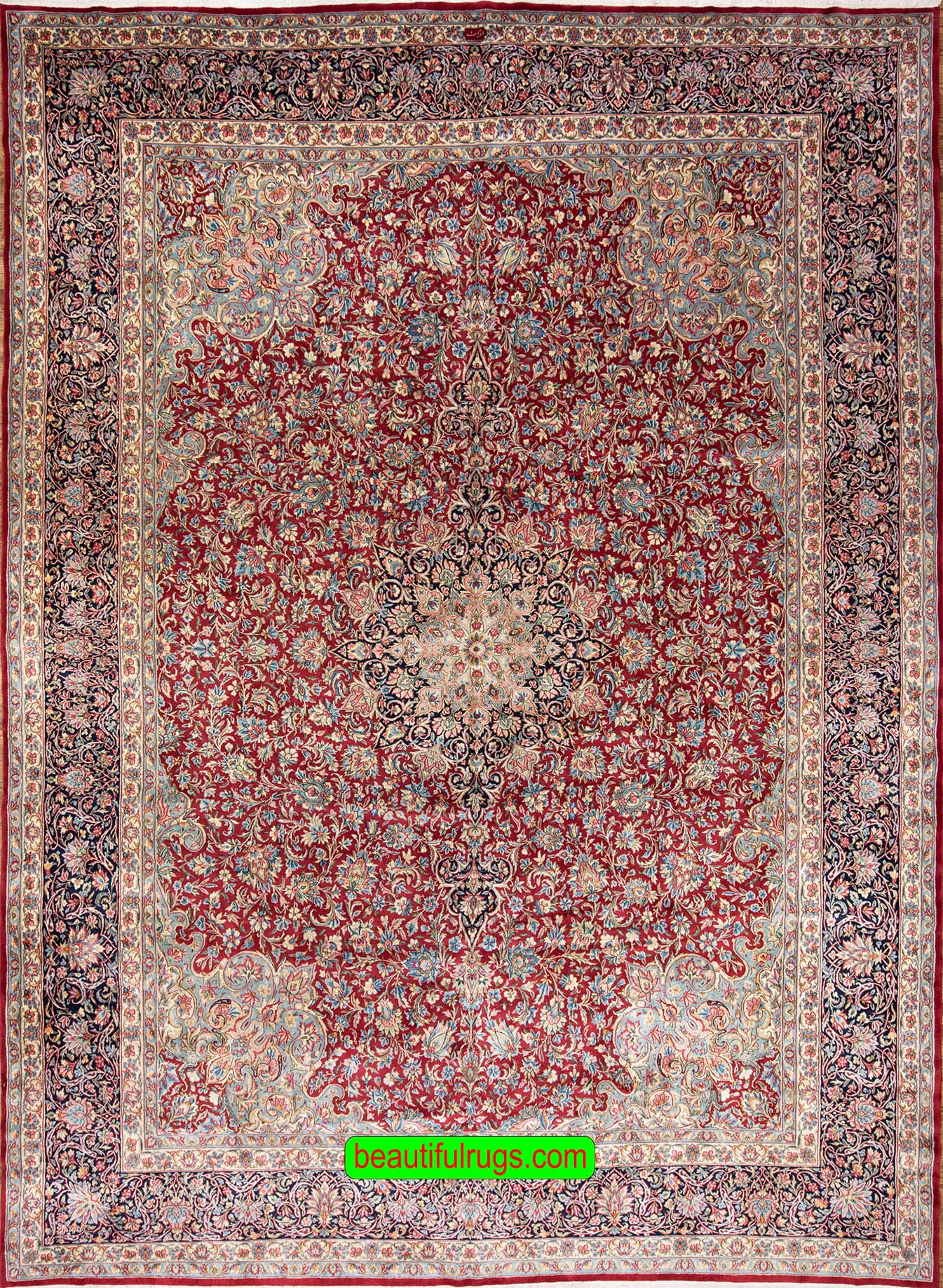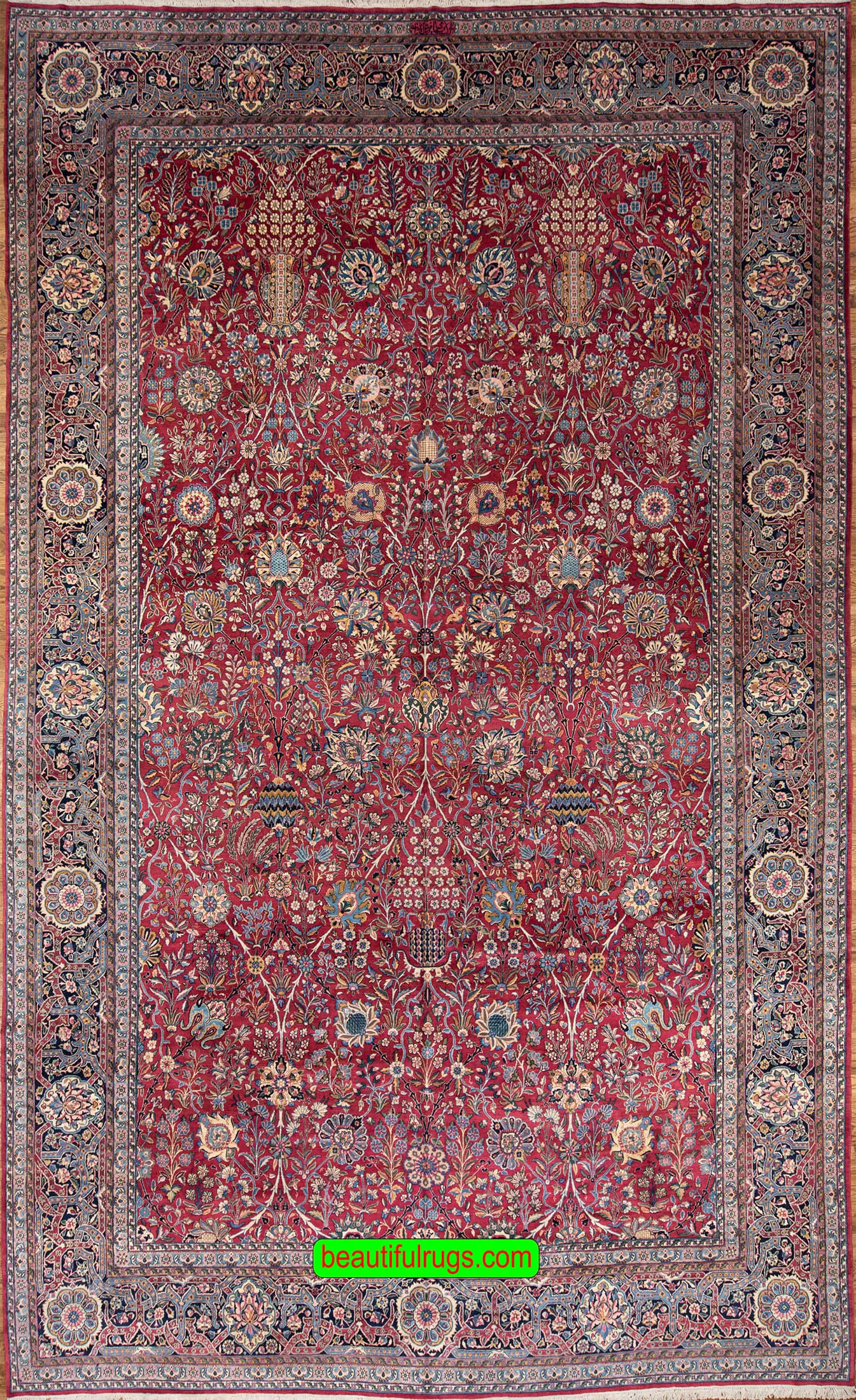Kerman Rugs, Antique Persian Kerman Rugs and Kerman Carpets
The city and province of Kerman is located in southeast Iran, and it served as an important center of trade and handicrafts and the capital of Persian dynasties; it has many historic mosques. Rugs have been made in this area since the late 16th century when a royal workshop was established there, and Kerman became one of the first rug export centers to the West.

With the increased demand for the export of Persian rugs in the late nineteenth century, many rug workshops were established in Kerman and nearby towns and villages, so it became a large-scale center of rug production for export. In the 20th century, many Western companies set up rug businesses in the city.
One distinguishing feature of Kerman (or Kirman) rugs is the exceptional quality of locally produced wool known as kork. Kirman rugs feature a wide range of styles and designs, but an open field in which one central medallion, diamond-shaped, sometimes with pendants, is clearly seen is common in modern Kirman rugs. The vase design, the tree of life, and historical portraits or scenes with figures are also common in Kirman rugs. The often dense and intricate designs of Kirman rugs appear in many colors; antique rugs use vibrant red, yellow, and golden brown. Golam Hussein and Sherafat Khan are among the renowned weaver-designers from this region.
Showing all 5 results
STYLES
-
Sale!

Persian Rug, 12x15 Rug, Persian Kerman Wool Rug
Original Price:
Sale Price: $12,565.00Save: $5,385.00 (30%)
Read more- Sale!

Large Area Rugs, 11x18 Rug, Antique Persian Kerman Rug
Original Price:
Sale Price: $29,960.00Save: $12,840.00 (30%)
Read more- Sale!

Persian Kerman Rug, Multicolor Rug, Rug with Birds
Original Price:
Sale Price: $2,790.00Save: $2,110.00 (43.1%)
Read more- Sale!

10x12 Rug, Persian Kerman Rug, Allover Design Rug
Original Price:
Sale Price: $9,600.00Save: $3,000.00 (23.8%)
Read more Sold Out
Sold Out10x14 Rug "Iranian Carpets" Vintage Floral Rug, Persian Kerman Rug
Read more - Sale!





